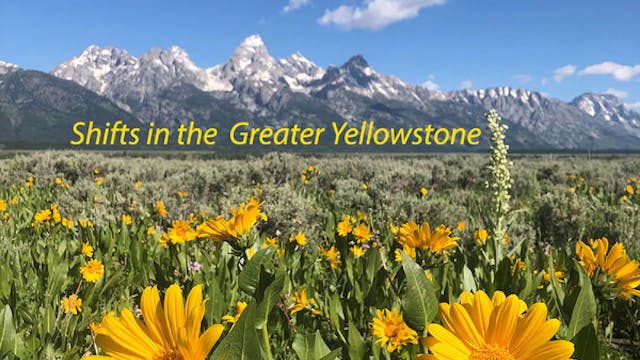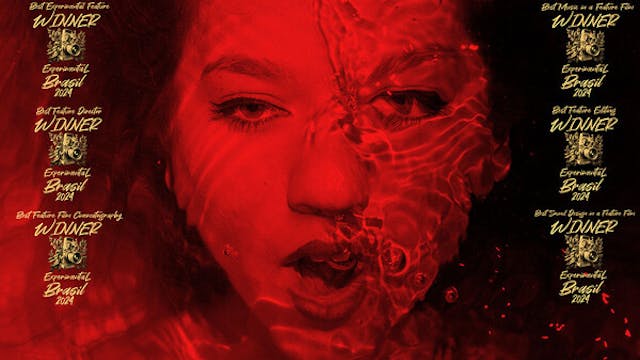Female Festival Best Scene: DISCHORDANT, by Melanie Munt (interview)
New Releases
•
3m 59s
A down-on-her-luck violinist reluctantly accepts an offer to teach a young boy with severe social anxiety.
CAST LIST:
Narrator: Shawn Devlin
Rachel: Hannah Ehman
Gracie: Val Cole
Get to know the writer:
1. What is your screenplay about?
Dischordant is a live action/animation hybrid about self-destructive, single Rachel, a forty-year-old violinist whose greatest dream is just to get her job back with the Adelaide Symphony Orchestra but fucks it up every time, and David, a selectively mute, neurodivergent eleven-year-old with a dark secret, who just wants to fit in.
Rachel struggles to connect with and unlock her full talent. Her technique is perfect, but her heart? That's locked away. In the pilot, Rachel loses her job and her beloved cat, and - once again - blows an audition with the Symphony Orchestra. She's under constant pressure from everyone around her - Gracie, her half-sister who suffers from PTSD, her mum Joan who pesters her at every turn and who develops early onset Alzheimer's, and her needy BFF Lucy who, through her own insecurities, makes Rachel feel worthless at every turn. So of course, Rachel has her emotional barriers wayyyyy up. Until now she has been unable to break through these barriers, but David is going to change all of that.
Rachel and David form a unique bond of trust, mainly through music which flows through the series almost like a character itself. Music is the only thing that can calm David when he's going through his "darkening" – like when the neighbour mows his lawn too loudly, or the markers scratch too loudly on the whiteboard at school. David will eventually learn to trust Rachel, and finally reveals to her the dark secret that made him selectively mute. Rachel must now decide whether to breach his trust in the name of justice, or keep his nightmarish secret and let someone get away with murder.
Dischordant is a character driven, no filter dramedy about falling down and getting back up, time and time again. About being rejected over and over and learning how to live with that. It's sarcastic - the characters use humour as a coping mechanism - but it is always rooted in the reality of the constant fight to get what you want, no matter how many times you have to claw yourself out of that hole. As viewers, we want Rachel to succeed, we want her to fight, because if she doesn't, what hope do the rest of us have?
2. What genres does your screenplay fall under?
Drama and comedy (dramedy).
3. Why should this screenplay be made into a movie?
I'll talk about why it should be made into a pilot, rather than a movie. 🙂
I'm the mum of a selectively mute, neurodiverse and very inspirational eight-year-old girl, who I have watched struggle through life, school, and friendships because she can't explain to others who she is, how she's feeling, what she's thinking. She has been vilified because people think she's being rude - kids and adults alike. Watching her go through all of this was heartbreaking, and I couldn't bear the thought of other kids and their families having to go through what we went through, so I decided to write a show about it in the hope of helping audiences around the world understand what it's like to live with, and alongside, neurodiversity. It is my hope that if Dischordant gets made, it will shine a brighter light on neurodiversity and what it looks like at least for this one kid - because it is different for everyone - and in that way create more understanding and opportunities for open and honest conversation about it.
Dischordant offers a unique perspective into individuals living with neurodiversity and eases viewers into important commentary about invisible disability. It uses point of view techniques, subtle animation, and visual effects to show what David, our lead neurodiverse character sees, hears, and how he feels, which allows the audience to really understand what life is like for this one neurodiverse individual from his perspective.
Stories about neurodiversity are among those at the forefront of the world's consciousness as we are just beginning to learn about the autism spectrum, ADHD, dysgraphia, dyslexia, and many more. The neurotypical among us are learning that neurodivergent people see the world in a very different way. That's why audiences are connecting with and relating to characters who identify as neurodiverse, and why tv shows like Heart Break High, Dreamlife of Georgie Stone, and Boy Swallows Universe are so successful, here in Australia at least.
But of course, no one wants to be beaten over the head with an education when they're trying to watch something entertaining and be taken away from the humdrum of daily life, so I chucked some of me in there too - the self-destructive artist who uses humour as a coping mechanism - in the form of the co-lead, Rachel. Because if you can't laugh at yourself, who can you laugh at...? Right...?
I believe that laughter is the best path to understanding, so Dischordant confronts these important, timely issues with quirky, complex characters who are relatable and hopefully very funny, without ever shying away from the realities of the consequences of childhood trauma and the struggles of living with neurodiversity.
4. How would you describe this script in two words?
Funny, honest.
5. What movie have you seen the most times in your life?
The Princess Bride.
6. How long have you been working on this screenplay?
About a year and a half. It has been through many iterations, and several different formats before settling on the half-hour!
7. How many stories have you written?
Stories? Thousands! I've been writing stories since I was a kid, but this is my first foray into screenwriting. Dischordant is the project that I have honed the most, but I'm also working on a feature film and two more pilots at the moment.
8. What is your favorite song? (Or, what song have you listened to the most times in your life?)
Ooooh that's a tough one. At the moment I'd have to say my favourite song is Skin by Sixx AM, but I used to be a huge musical theatre buff (still am really!) so the song I have probably listened to most in my life is On My Own from Les Miserables. Or basically the entire score of Les Miserables.
9. What obstacles did you face to finish this screenplay?
I am a single mum of a neurodiverse child and I have her 95% of the time, and I am also a struggling actor and writer, so my obstacles are pretty huge. I have to juggle parenting, school trips, extra-curricular activities, occupational therapy, Autism appointments, housework, trying to get acting and voiceover work to pay the bills, and writing all at once. It's pretty intense. But coffee definitely helps. And chocolate. Chocolate helps too.
10. Apart from writing, what else are you passionate about?
My daughter takes first place there - she's my heart and soul. I'm also passionate about acting and graduated from one of Australia's top drama schools back in 2005. I am a huge advocate for diversity and for neurodiverse children - I think everybody just needs to be treated like a human being, regardless of race, gender, religion, sexual preferences, whether neurotypical or neurodiverse, however we identify, we all identify as human beings and we are all worthy of love and respect. I am also very passionate about animal welfare and my dream would be to one day be able to live on an acreage somewhere and adopt as many animals as I can!
11. You entered your screenplay via FilmFreeway. What has been your experiences working with the submission platform site?
I actually entered the screenplay through the ISA website so I'm not familiar with FilmFreeway, sorry!
12. What influenced you to enter the festival? What were your feelings on the initial feedback you received?
I wanted to enter this festival in particular because I love that it's female focussed and I love that its primary mission is to "not be around in five years time", to "not be relevant because there is zero need to have a festival geared for female talent and female stories because the stories presented in Hollywood and around the world are a balanced showcase of the human experience from both sexes".
I feel like that echoes my feelings about humanity, and my hope that someday sex, gender, race, religion, sexuality, or any other diversity will no longer be considered relevant in terms of equality - the only thing that will be relevant is that we are all human and all equal and that our differences are what make us beautiful. They're what makes the world go round.
The initial feedback was excellent. It talked a lot about the strengths of the script and also gave very constructive suggestions about changes and edits, along with possible ways to incorporate them. The feedback was intelligent and actionable, and it helped me very much on my next pass of the script. Some of the best feedback I've received.
Up Next in New Releases
-
LGBTQ+ Festival Best Scene: BARNABY A...
Lonely curmudgeon Gerald has his life turned upside down with the unexpected arrival of his five-year-old orphaned grandson Barnaby following the death of his estranged daughter. But Barnaby, who likes to wear dresses and be called Bella, challenges all of Gerald's bigoted limitations to an extre...
-
DOC Shorts - HUMAN INTEREST Festival ...
See the Full Lineup of Films:
FOR EVERYTHING THERE WAS A SEASON, 20min., USA
Directed by Trevor Bloom
A changing climate alters the fragile balance of survival for both wildlife and people in the Greater Yellowstone region. Visualized as the story of each of the four seasons, we’ll show you how... -
Black & White Festival Feature Showca...
MEMORY OF WATER, 76min., France
Directed by Michael LASSERRELoïc, a photo artist plagued by doubt, is preparing his new exhibition, but his stubbornness to create his ultimate work of art will see him forced to confront a ghostly figure from his past.


